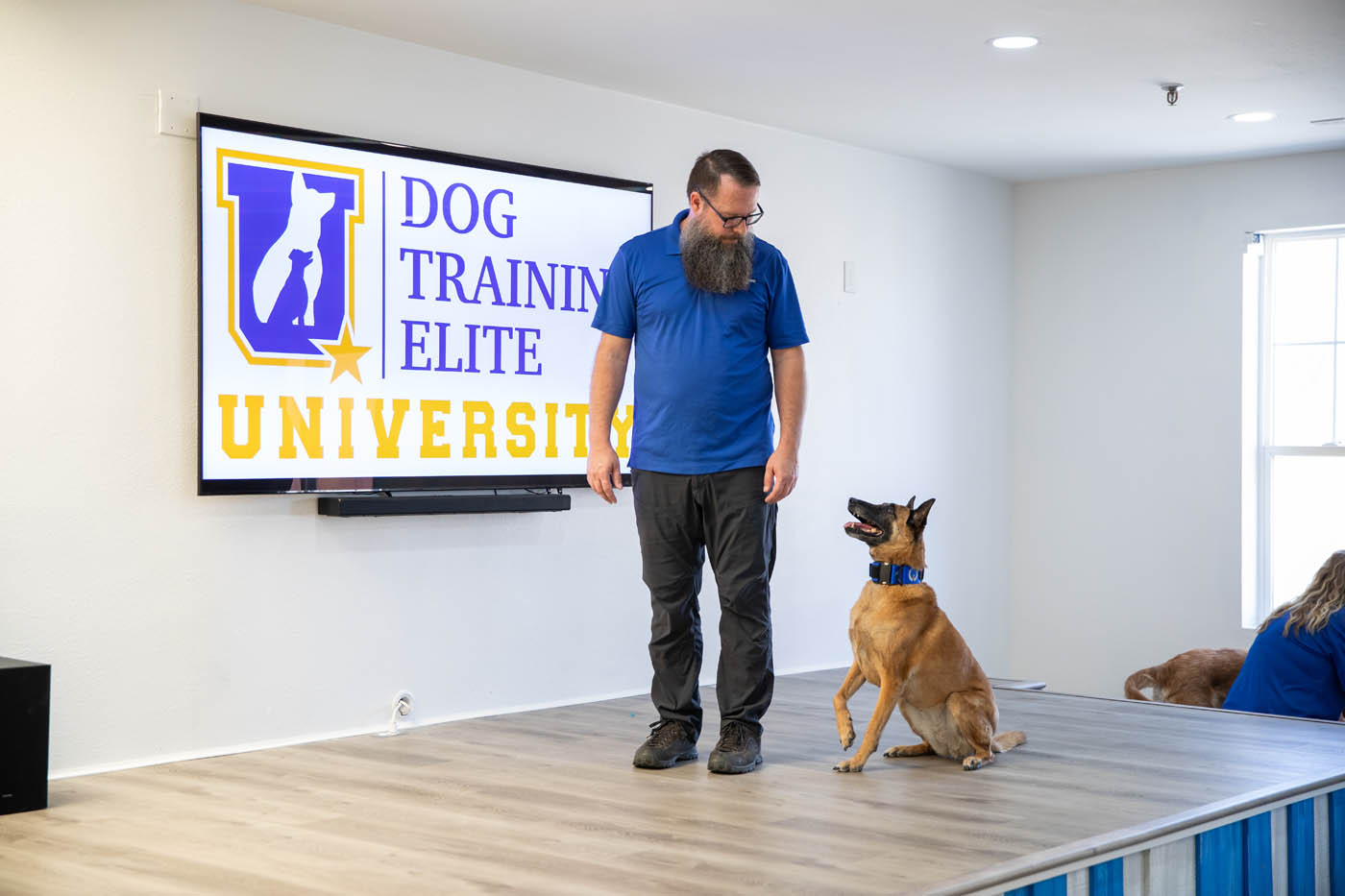Unlock Your Pet dog's Possible: Proven Dog Training Techniques for Success
Reliable dog training is a nuanced procedure that pivots on understanding canine behavior and utilizing clinically backed methods. dog training charlotte. By including favorable reinforcement, establishing clear commands, and prioritizing socializing, pet owners can grow an effective partnership with their pet dogs. Obstacles often arise that call for customized options and an individual method. Exploring these proven techniques reveals not only the possibility for behavior improvement yet additionally the deeper bond that can be formed in between owner and dog. What essential approaches must be thought about to really open your dog's capacity?
Comprehending Dog Actions
Understanding pet behavior is crucial for reliable training and promoting a favorable relationship in between canines and their proprietors. A comprehensive understanding of canine body movement, vocalizations, and social communications is crucial for acknowledging their needs and emotions. Canines connect primarily with non-verbal signs; as an example, a wagging tail may show excitement, while pinned ears can indicate anxiety or submission.

In addition, ecological aspects play a substantial role in shaping a canine's behavior. Changes in routine, new surroundings, or the presence of strange people can cause anxiety or anxiety in dogs. Recognizing these triggers makes it possible for proprietors to alleviate unfavorable reactions and create proper training methods.
Eventually, a deep understanding of canine behavior lays the foundation for effective training techniques, improving both actions and the total bond between the pet and its proprietor. dog training charlotte nc. This understanding is essential for fostering a well-adjusted, delighted canine companion
Favorable Reinforcement Strategies
Effective training counts heavily on positive support strategies, which have been revealed to yield considerable cause shaping wanted habits in pets. This technique involves awarding a dog for displaying specific habits, thereby boosting the likelihood that these actions will be duplicated. Benefits can take numerous forms, consisting of deals with, praise, playthings, or play, depending on what inspires the individual canine.

It is necessary to progressively eliminate rewards as the dog finds out the habits, transitioning to intermittent support. This method maintains the actions gradually while avoiding dependence on continuous rewards. By concentrating on positive support, fitness instructors can cultivate a relying on relationship with their pets, promoting a participating and healthy training environment that improves overall obedience and efficiency.
Developing Constant Commands
An essential aspect of effective pet dog training is the establishment of constant commands. Consistency in commands is vital for effective interaction between the trainer and the pet dog. When commands are consistent, dogs find out to associate certain words with wanted behaviors, which accelerates the training procedure and enhances understanding.
To establish constant commands, it is essential that all member of the family make use of the same terms and gestures. For example, if someone makes use of "sit" while one more claims "sit down," it can produce complication for the pet. Select clear, distinctive words for commands and ensure everybody associated with the pet's training sticks to these choices.
Reinforce commands through frequent technique, ensuring that the canine gets adequate possibilities to react appropriately. When a pet my explanation efficiently adheres to a command, prompt favorable support should follow.
Lastly, be client. Establishing constant commands requires time and initiative. With commitment and clarity, you will aid your dog develop a solid understanding of assumptions, inevitably leading to a well-behaved friend.
Socializing and Exposure
Mingling a pet dog is vital for cultivating a well-adjusted and certain friend. This process involves subjecting your canine to a variety of atmospheres, people, and various other animals to create their social skills and flexibility. Early socialization, preferably between the ages of three to fourteen weeks, is crucial, as it lays the groundwork for a pet's future behavior.
Throughout socialization, goal to offer favorable experiences in different setups, such as parks, hectic streets, and homes with various other pets. Present your dog to numerous stimuli, including audios, sights, and smells, making certain that each experience is gratifying. This direct exposure assists minimize worry and anxiousness, paving the means for a much more resistant canine.
Involving in controlled team play sessions with various other pet dogs can also improve social abilities, instructing your animal appropriate communications and boundaries. Constantly monitor your pet's comfort degree during these experiences, slowly raising exposure as their confidence expands. Remember, the objective is to develop a well-shaped animal that grows in diverse scenarios, promoting a harmonious connection with both humans and other pets. Focusing on socializing will considerably add to your canine's overall happiness and habits throughout their life.
Conquering Common Educating Difficulties

Dogs may have a hard time to concentrate in busy or unfamiliar settings. Slowly desensitize your pet to distractions by starting training in a peaceful setting and slowly introducing more stimuli as they come to be proficient.
Furthermore, behavioral problems like leaping or too much barking can become aggravating. Address these by showing different actions, such as resting steadly when welcoming visitors. Consistency and patience are essential; strengthen preferred habits constantly and prevent scolding, which can result in complication.
Last but not least, recognize that each pet dog is unique, and training timelines may differ. Dressmaker your strategy to your pet's specific demands, and look for expert support if necessary. With willpower and the appropriate approaches, getting over these obstacles can lead to a well-trained, satisfied canine friend.
Final Thought
In final thought, unlocking a dog's potential requires a detailed strategy that includes an understanding of canine behavior, the application of positive reinforcement techniques, and the establishment of constant commands. Early socializing and exposure to diverse settings additionally enhance a dog's flexibility and confidence. By addressing usual training difficulties messy pet cat deterrent with tailored techniques and persistence, a participating and harmonious partnership between dog and trainer can be cultivated, eventually leading to a mannerly buddy efficient in flourishing in various situations.
Effective dog training is a nuanced procedure that pivots on comprehending canine behavior this hyperlink and using clinically backed techniques.Understanding dog behavior is crucial for effective training and fostering a favorable partnership between canines and their proprietors.Efficient training counts greatly on positive support techniques, which have been revealed to yield significant results in shaping desired behaviors in pets. When commands are consistent, pets discover to link certain words with wanted behaviors, which speeds up the training process and boosts understanding.
In verdict, opening a pet dog's possible requires a comprehensive approach that includes an understanding of canine habits, the application of favorable reinforcement strategies, and the establishment of consistent commands.